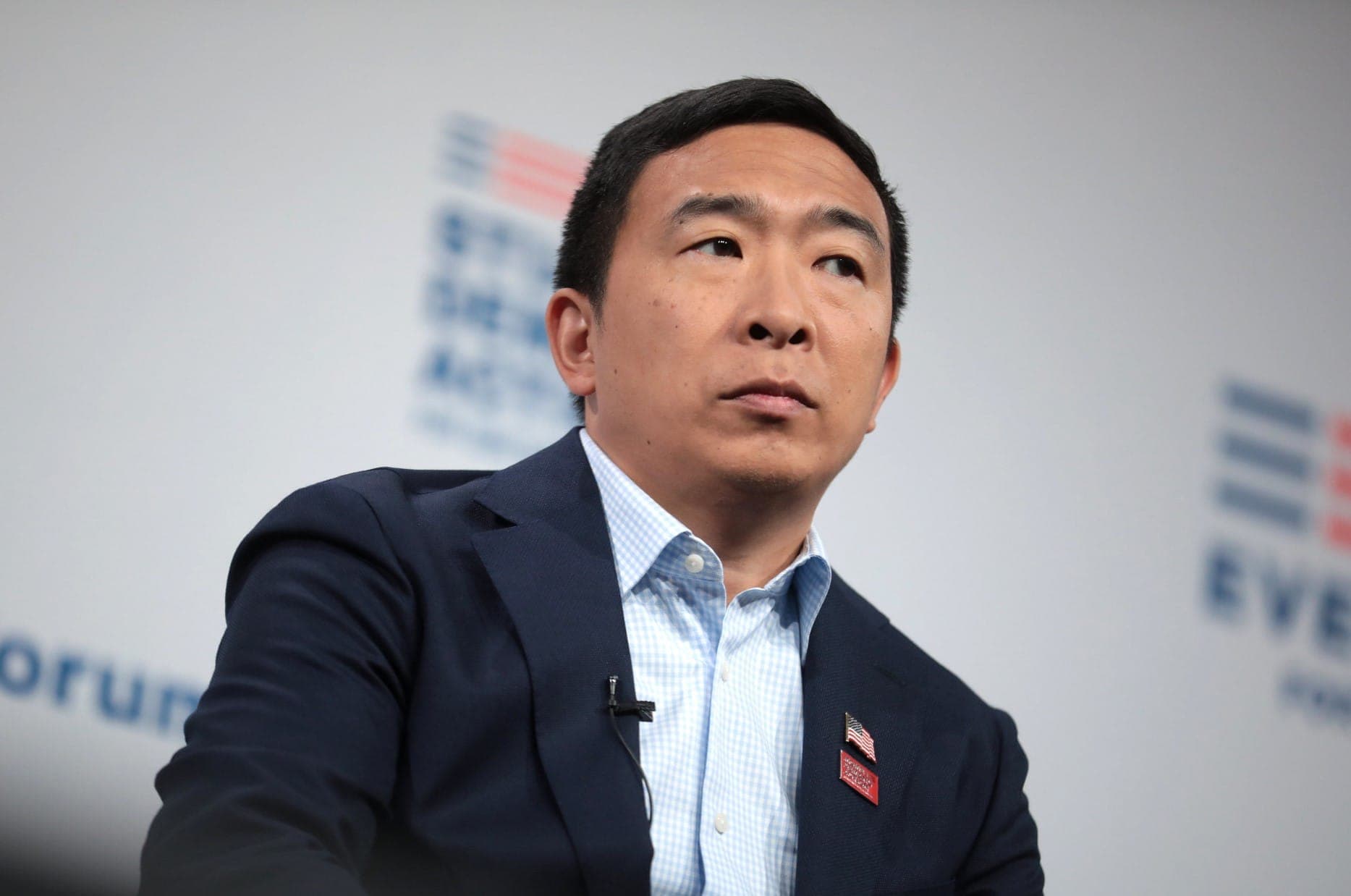Meet the Independent Who Is Beating An Incumbent Senator in Nebraska

Can an independent problem solver break through the partisan narrative and structure of the nation's elections and politics? Mechanic, soldier, and union leader Dan Osborn is running for US Senate in Nebraska with that goal in mind.
"I tell people if I have a flat tire on the road and my bumper sticker doesn't match yours, you're not going to stop and help me. That is where our politics have gotten to," said Osborn.
"This is why the independent path is the path to victory because it is going to position you and it is going to position me to be able to work with both sides at a time when everything is so partisan."
The timing may be right for a candidate who wants to put problem solving first. Voters are frustrated with increasing polarization and the lack of representation and accountability in Washington DC. And the race in Nebraska is unique this year for one reason:
There will not be a Democrat on the general election ballot.
The only major party candidate is Republican incumbent US Sen. Deb Fischer -- putting more eyes on an independent candidate like Osborn. This is the second time in the last decade an independent has had this kind of opportunity.
Osborn was the latest guest on Open Primaries' ongoing virtual discussion series. He and Open Primaries President John Opdycke discussed his campaign, his experience as a problem solver in union negotiations, and why America needs an "independent attitude" right now.
It should be noted that Osborn is not a politician. He has never held political office, but he has worked with a multi-billion dollar corporation on behalf of the workers who are directly affected by decisions made by the company.
As a union leader, he led a strike that saved 500 middle-class jobs at Kellogg's in Omaha, Nebraska, and 1,500 more across the country.
"I haven't always been a politically motivated person. I've worked 60, 70, 80 hours a week as a mechanic for the last 20 years," he said. "But the strike at Kellogg's changed me. It woke me up to the fact that I now believe and understand that a group of people or one person can make a difference."
Osborn says he wants to continue to be a voice for working class Americans who don't get a fair shake because, in his words, "our Senate is a country club full of millionaires and billionaires" disassociated from the reality of everyday citizens.
His work in the US Senate would not look much different than his work during the Kellogg's strike. The only real difference is he would have to work and negotiate with loyal members and leaders of two corporations instead of one -- i.e. the Republican and Democratic Parties.
"We can't keep electing the same talking heads and empty suits and expect change in this country," said Osborn.
There is a stigma attached to independent candidates that their only role is a "protest candidate" or "spoiler," but Osborn believes this is the best route to victory, especially in a state like Nebraska that has been dominated by a single party for decades.
And while the talking heads might call him a "protest candidate," Osborn says he has delivered the same message to rooms filled with Democrats and Republicans and has gotten standing ovations from both.
"Once we get past our wedge issues, we have a lot more in common than the media lets on," he added. "People are paying more attention now than they ever have because everyone is hurting ."
A quick look at Osborn's platform shows not only how it is unlike any platform voters have seen, but how he can reach voters across the political spectrum, including the more than 300,000 independent voters in Nebraska. He wants to:
Cut taxes on small businesses and the middle class, support veterans, ensure no more soldiers are on food stamps, legalize Cannabis, lower taxes on overtime pay, end wasteful government handouts to pharmaceutical companies, secure the border (as in close the border), help family farms, and enact term limits -- among other things.
Current polling in the race shows that Osborn may be on the right track with voters. A poll from Change Research shows Osborn at 40% and the incumbent Republican at 38% -- and these numbers come as many voters in Nebraska still don't know much about Osborn.
"It shows people are ready for a change," said Osborn. "They're tired of the polarization in politics, and as I speak to people in Nebraska, it is the same theme: People are frustrated with what they see in DC, nothing getting done, and the division it's created."
Osborn's campaign is in a similar position as Greg Orman's 2014 independent US Senate campaign in Kansas. It was a two-candidate race between Orman and incumbent US Sen. Pat Roberts -- and Orman came close. He got 42% of the vote in a state that is dominated by a single party.
Orman recently discussed his campaign with Andrew Yang on the Forward Podcast.
In many ways, Orman and Osborn are not dissimilar in their approach. One is an entrepreneur, the other is a union leader -- but they both take a problem solving approach to running as an independent. Their platforms may differ on various points, but their goals are the same.
Orman showed that under the right circumstances the path to victory is there for an independent. The question is: Will Osborn be the independent who carries it a step further and crosses the finish line?
Be sure to check out the full conversation between John Opdycke and Dan Osborn above.
 Shawn Griffiths
Shawn Griffiths







